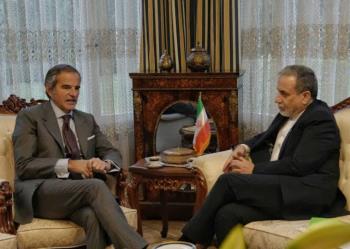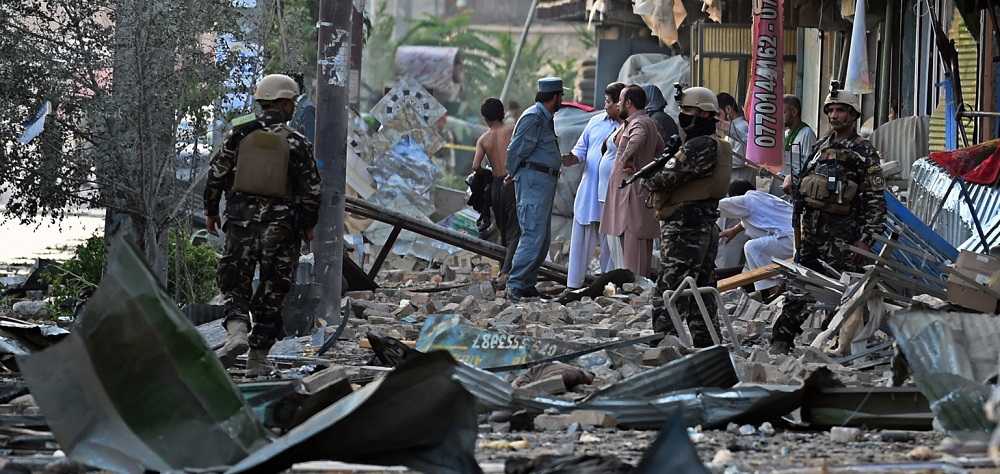Alwaght- Over the past few weeks, the Afghan government forces and the Taliban militants have been heavily clashing in Ghazni city in the east of the country. On the occasion of the Eid Al Adha, the government announced a three-month unilateral ceasefire, hoping to bring back calm to the country, though for a short time. In the meantime, the presidential palace came under attack. Taliban rejected that it was behind the attack but it at the same time refused to accept President Ashraf Ghani's proposal. The rejection once again pushed the Central Asian country’s peace prospect into opaqueness.
To get a picture of the situation, Alwaght arranged an interview with Mr Abbas Fayaz, an Afghanistan affairs expert.
Asked about the reason behind the Taliban turning down of the offer for cessation of the hostilities, Mr Fayaz told Alwaght that the Taliban has never recognized Afghanistan government and never negotiated with it. It instead called for direct talks with the US to signal that the crisis has two main sides: the US, an occupying side in Taliban eyes which must leave Afghanistan. The other side is the Taliban which is fighting against the occupation.
“The peace offer by Kabul comes while the US, finding its anti-Taliban pressure campaign ineffective, is holding direct talks with the Taliban. The US Deputy Assistant of Secretary of State Alice Wells met with the Taliban negotiators in Qatar several rounds. Right in the middle of this, Taliban intensified its anti-government raids, and seized the strategic Ghazni city for a couple of days. The militant group steps up its attacks while negotiating, trying to send the message to Washington that no region is off its fire range and so the Americans need to make concessions. Taliban ordered its fighters to hold their fire during Eid days and announced it will release a large number of government forces possibly in a bid to garner popular support.”
The expert was also asked for comments on threats posed to Afghanistan by ISIS terrorist organization, which claimed responsibility for the assault on the presidential palace, and if the attack carried messages while the government truce proposal was made to Taliban. He said whether the attack carried a message or not is tied to our view of ISIS. There are different views on Afghanistan’s ISIS. One view, largely supported in the country, is that ISIS in Afghanistan is a group created and supported by the Pakistani intelligence to act as a pressure instrument against Kabul and the Americans when the Taliban decide to enter a peace process with the central government. Certainly, the attackers wanted to show how incapable the government is in defending the people, an act that will be damaging to its legitimacy.
Answering a question about who is taking advantage of the raid, Mr Fayaz maintained: “Apparently Taliban and its key backer Pakistan benefit from the violence. We should know that Taliban's dialogue with the Americans is not without Islamabad permission. So, both Pakistan and Taliban use a weak Kabul to wrest concessions from the Americans.”
“Taliban is a threat to the peace process if we consider it a group relied on foreign sides like Pakistan, Saudi Arabia, and even the US”, the expert told Alwaght, answering a question about the dangers posed to the peace by the group.” “In case of a deal with the government or the US, the anti-negotiations parties of Taliban could defect from its body and join ISIS. This will allow for a level of controlled insecurity, needed to serve the foreign parties' goals in Afghanistan.”
Mr Fayaz was also asked about the Russian role in Afghanistan, especially that Moscow has recently said Taliban agreed to attend a peace conference in the Russian capital. He noted that in the beginning of the US invasion of Afghanistan the Russians were happy with the campaign and even, but later they found that Washington did not come to restore peace to Afghanistan. Rather, it intended to manipulate the insecurity to the Russian regional allies' detriment. Therefore, Moscow decided that it must get involved in a settlement to the Afghan crisis. Moscow believes that the Taliban cannot be disregarded in a peace deal.
“Russia insists that Afghanistan realities necessitate an inclusive process in which all the powerful parties are involved. In fact, the crisis needs a home determination and strong will from the regional and international sides with a role in Afghanistan. The Russian plan is contrary to the US's which is unilateral and without a comprehensive vision.”
There were questions about the peace prospect and also the time in which Taliban is likely to make peace with the government. Mr Fayaz said in response that according to the information leaked by the Western media about the talks with the Taliban, there is some optimism about a deal with the militant organization.
“Taliban does not negotiate without Pakistan’s green light. Perhaps the talks go on with a Pakistan supervision. In this case, the process cannot be an inclusive one involving all Afghan sides. That the current talks are a product of US-Kabul and Pakistan-Taliban coordination gives two possibilities: First, Afghanistan crisis can be solved by a Pakistani peace formula. Second, the government seeks the involvement of a new Pashtun force, namely Taliban, in the power structure to add to its political weight in the country's future. The second possibility triggers pessimism to the negotiations. Some inside Afghanistan disapprove of the current form of dialogue and ceasefire proposal.”
He added that there is a different view which suggests that the government struggles to stabilize the country for successful holding of the October elections. Based on this view, negotiations with the Taliban only serve a government’s trick to buy time for security.
“No matter what is the drive for talks, if the negotiating sides genuinely seek success in peace, they should consider all of the domestic parties and even the influential neighbors which hope to see a secure Afghanistan. Any peace requires Washington to yield to inclusion and forsake unilateralism,” he maintained.



























